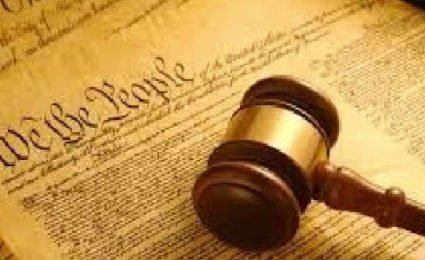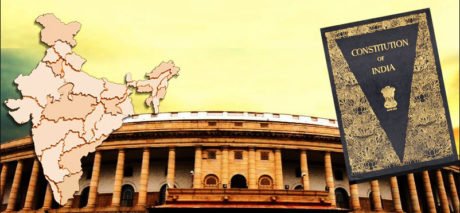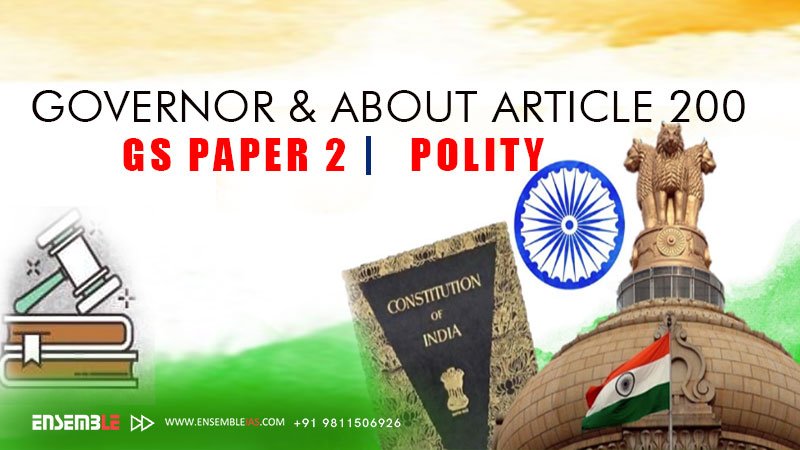The Governor, the Legislative Assembly (if there is one) and the Legislative Council (if the State has two Houses) make up a state’s legislature. Governor mostly acts on the advice of the Council of Ministers (CoM) headed by the Chief Minister.
Governor Discretion
It matters if a Governor has discretion or not in a certain situation since, in accordance with Article 163(2) of the Constitution, his choice cannot be overturned. The Supreme Court ruled in Shamsher Singh v. State of Punjab (1974) that a President or Governor may only act independently of their Ministers when the Constitution clearly authorises such action.
The link to join the course : Online Courses
Article 200
According to Article 200, the Governor has three options when presented with a bill: he may either offer his assent, withhold it, or return the bill with recommendations.
According to the first provision of the Article, the Governor may, as soon as possible, return a bill that is not a money bill with a request to review the bill as a whole or any portion of it. It will take the House six months to decide whether to grant this request.
The Governor must veto the Bill after the House sends it back to him, whether or not his recommendations were followed.
The Governor has the option to send a Bill to the President under the second proviso of the Article if he believes that the Bill, if passed, will diminish the authority of the High Court. The process to be followed when a Law needs the presidential assent is outlined in Article 201 of the Constitution.

Important Judgement for Governor Autonomy
In Purushothaman Nambudiri v. State of Kerala, the Court evaluated the provisions of Articles 200 and 201 to hold that a Bill that was awaiting the Governor’s assent would not expire following the dissolution of the House. The court ruled that since there is no deadline set forth in Articles 200 and 201 for the Governor or the President to give their assent.
In Shamsher Singh, the Court concluded— that the Governor only exercises discretion independently of the Council with regard to the second provision. It was decided that one of these discretionary powers is the Governor’s ability to hold bills back for the President to review. The Court also emphasised the unique circumstances that allowed the Governor to act without consulting the Council of Ministers.
In Nabam Rebia and Bamang Felix v. Dy. Speaker, the Court further concluded that, with regard to Article 200, the Governor’s discretion extends only to the decision of whether or not a Bill should be reserved for the President’s consideration. This is significant because the Court also ruled that Article 163(2) must be interpreted in light of Article 163(1), which states that only situations in which the Constitution expressly authorises the Governor to act independently are exempt from judicial review.
Best Online Coaching for Civil Service_IAS_ UPSC_IFS_IPS, Free Study Material ENSEMBLE IAS ACADEMY
Call +91 98115 06926
Visit us:- https://ensembleias.com/
Online Store: https://online.ensemble.net.in/
Email: [email protected]
#governor #article_200 #gs_paper_2 #polity#civilservicesstudy #ensembleiasacademy #geographyoptional #k_siddharthasir #ias #civilservices #upsc_motivation #upsc_aspirants #upsc_exam #trendsingeography #trendofquestions #geographytrends #civilservicesstudy #ensembleiasacademy #geographyoptional #k_siddharthasir #ias #civilservices #upsc_motivation #upsc_aspirants #upsc_exam #strategicthinker




